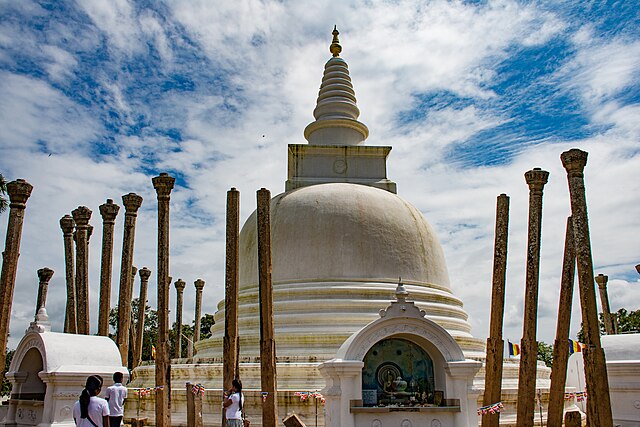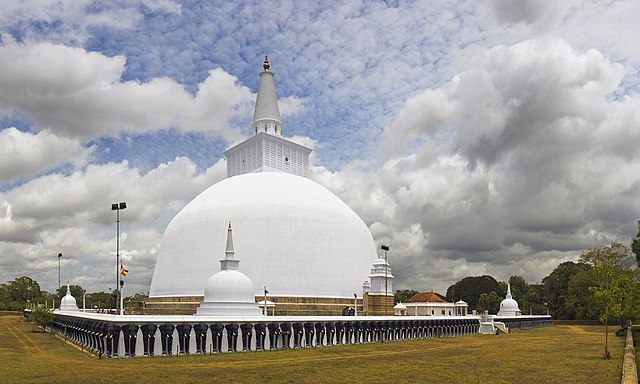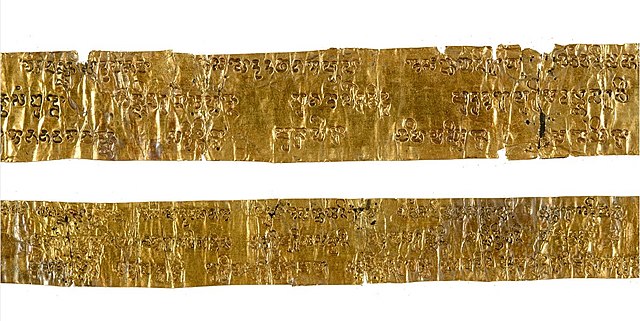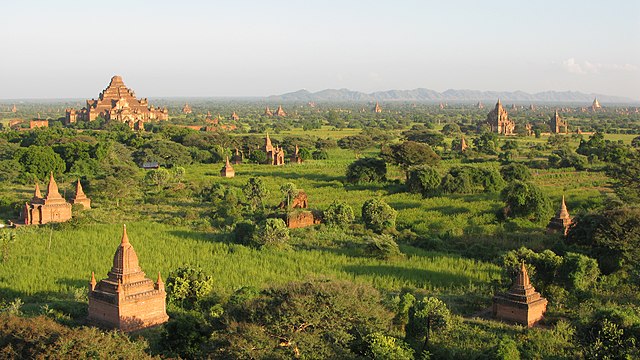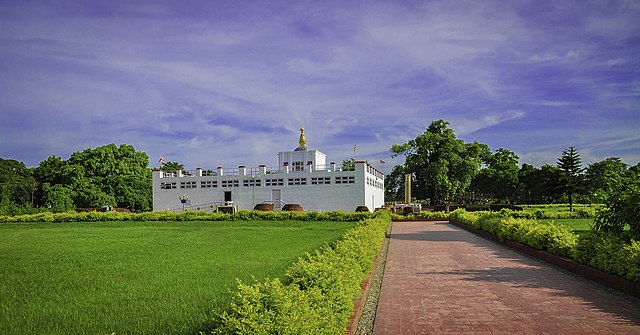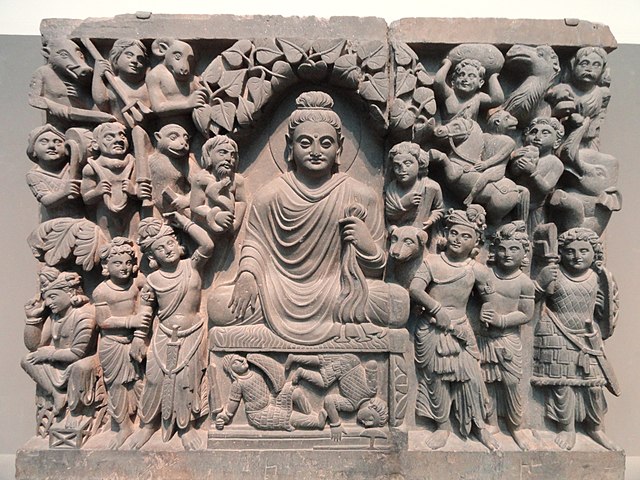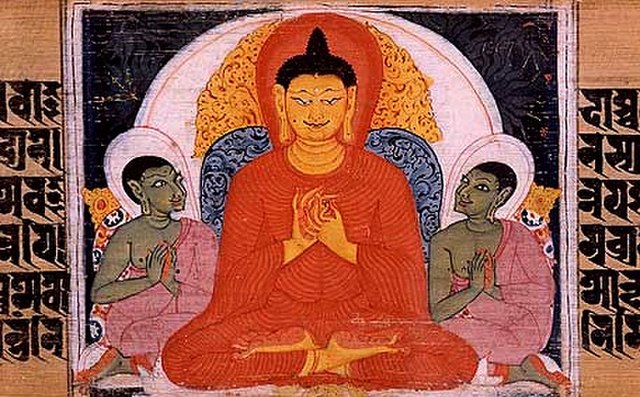Theravāda is the most commonly accepted name of Buddhism's oldest existing school. The school's adherents, termed Theravādins, have preserved their version of Gautama Buddha's teaching or Buddha Dhamma in the Pāli Canon for over two millennia.
The Thuparamaya Stupa, the earliest stupa after Theravada Buddhism became the official religion in Sri Lanka, dating back to the reign of King Devanampiya Tissa (247–207 BCE)
The Ruwanwelisaya stupa, built by the Sri Lankan King Dutugemunu (c. 140 BCE)
Gold Plates containing fragments of the Pali Tipitaka (5th century) found in Maunggan (a village near the city of Sriksetra)
Bagan, the capital of the Bagan Kingdom. Between the 11th and 13th centuries, more than 10,000 temples, pagodas and monasteries were constructed in the Bagan plains.
Buddhism, also known as Buddha Dharma and Dharmavinaya, is an Indian religion and philosophical tradition based on teachings attributed to the Buddha. It is the world's fourth-largest religion, with over 520 million followers, known as Buddhists, who comprise seven percent of the global population. Buddhism originated in the eastern Gangetic plain as a śramaṇa–movement in the 5th century BCE, and gradually spread throughout much of Asia via the Silk Road.
Mayadevi Temple marking the Buddha's birthplace in Lumbini
Enlightenment of Buddha, Kushan dynasty, late 2nd to early 3rd century CE, Gandhara
The Buddha teaching the Four Noble Truths. Sanskrit manuscript. Nalanda, Bihar, India
Traditional Tibetan Buddhist Thangka depicting the Wheel of Life with its six realms

